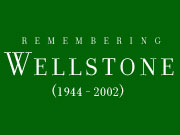| Remembering Wellstone |
Wellstone legacy may be reflected in new community center
October 21, 2003
 |
| Neighborhood House, on St. Paul's West Side, is the site of the future Paul and Sheila Wellstone Center for Community Building. (MPR Photo/Laura McCallum) |
St. Paul, Minn. — Neighborhood House was founded more than 100 years ago by women from Mount Zion Temple who wanted to help Eastern European Jewish immigrants.
 | |||
The agency still helps immigrants, but now many of them are from places like Laos, Somalia, and Mexico. They come to this brick building on St. Paul's West Side for everything from emergency assistance to family programs to English classes.
On a recent afternoon, students in a beginners' English class sang happy birthday to Saul, a 22-year-old immigrant from Mexico who moved here two months ago. Brad Hasskamp, who runs the agency's English Language Learners program, said about 100 people come to Neighborhood House each day for English classes.
"One of our biggest constraints right now is we just don't have enough classrooms for all of our English learners," Hasskamp said. "But hopefully with the new center, we'll definitely have a lot more space, and a lot brighter and better space too."
 | |||
The plan is to raze this building early next year. In its place will be built the Paul and Sheila Wellstone Center for Community Building, at a cost of more than $25 million. The 93,000-square-foot building will include an auditorium, a gymnasium, more meeting rooms, a workout room, a bigger Food Shelf, a cafe, and a drop-in child care center.
Neighborhood House president Dan Hoxworth said the project must still raise money from the private sector.
"We've received an amazingly generous $20.5 million in public funds toward this project," Hoxworth said. "And we need to see the private sector and our supporters, both foundations and individuals, step forward and make a commitment of at least $5 million for the capital campaign."
Public money for the project comes from the state, the city of St. Paul and the federal government. Sen. Mark Dayton, D-Minn., pushed for the federal funding, along with the interim senator appointed to replace Wellstone, Dean Barkley of the Independence Party.
 | |||
Sen. Norm Coleman, R-Minn., also helped get the money for the center, after he was elected to Wellstone's seat. Dayton says there was no disagreement over where to build a memorial to Wellstone.
"Once the family members, especially David and Mark Wellstone, indicated that this was their first priority in terms of where a suitable memorial should be funded by the Congress, I think that pretty much decided the matter in terms of what project and where," Dayton said.
Wellstone identified with Neighborhood House, according to president Dan Hoxworth, because he was the son of Russian immigrant Jews. Some of the new immigrants who now gather at Neighborhood House said they owe their citizenship to Wellstone.
Members of Hmong American Unity, a group for Hmong parents and veterans, say they'll never forget Wellstone's push for passage of the Hmong Naturalization Act in 2000.
 | |||
Za Thao Lee is a veteran from Laos who fought in the Vietnam war. Speaking through an interpreter, he said he wouldn't be a U.S. citizen if it weren't for "Senator Paul", as many of the Hmong call Wellstone. Lee said the the Hmong Naturalization Act made it easier for Hmong veterans to become citizens, and he was able to pass his citizenship test quickly.
The leader of Hmong American Unity, Seng Yang, said since Wellstone's death, many of the group's members don't feel like they have an advocate any more. But Yang said they're happy that the Center for Community Building will be named for Wellstone.
Neighborhood House's Dan Hoxworth said as Minnesota's population becomes more diverse, the role of the Wellstone Center is even more important. He said Neighborhood House is already working with rural communities such as Long Prairie and Marshall that have growing immigrant populations. The new center will be able to link with rural communities via teleconference to offer its expertise. If all goes as planned, officials will break ground for the Wellstone Center next spring, and it will open sometime in 2005.
|
News Headlines
|
Related Subjects
|

